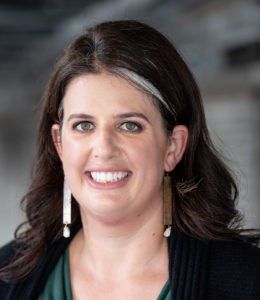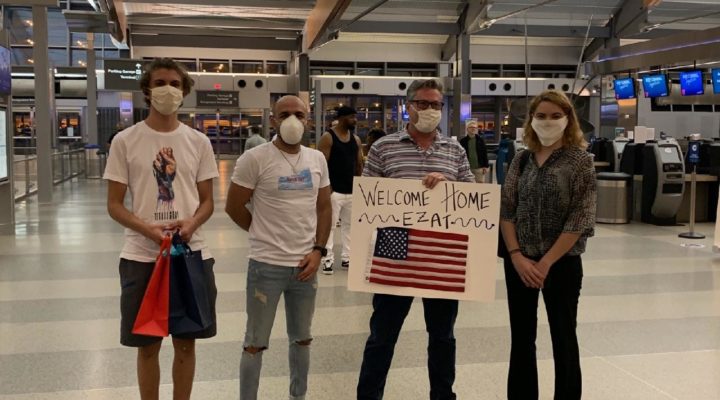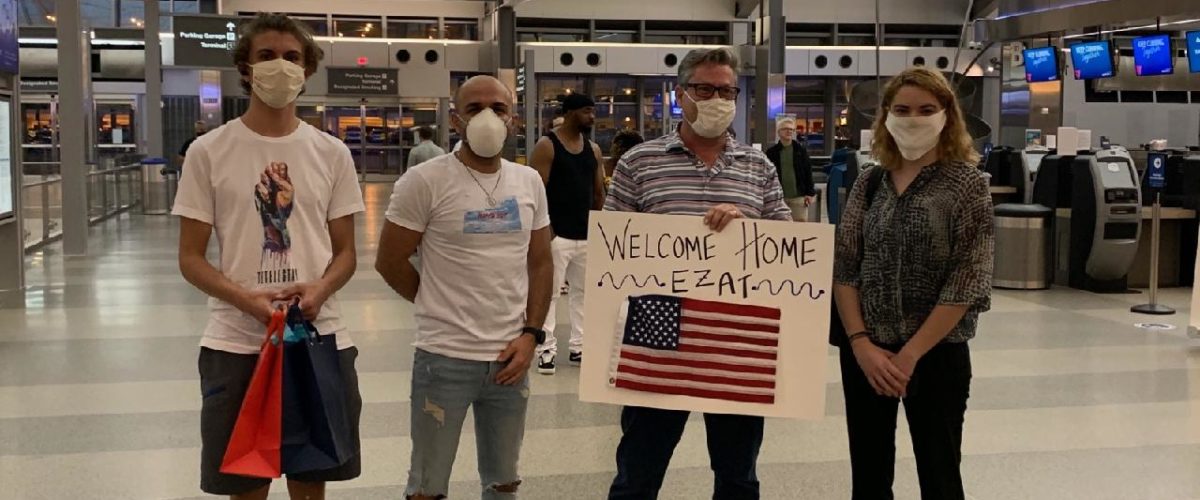President-elect Joe Biden has announced he intends to raise the nation’s refugee cap by more than 100,000 after years of plunging totals under the Trump administration. But officials with domestic agencies and the ministries that help resettle and support refugees caution not to expect the new total to happen overnight.
Biden has pledged to admit up to 125,000 refugees through the refugee resettlement process that includes extensive vetting requirements, including health and security screenings. Trump set the 2021 ceiling at 15,000.
The last full year of President Barack Obama’s term, the refugee ceiling was set at 85,000 and fell only five short in actual admissions. In 2017, the first year of the Trump administration, the ceiling was lowered to 50,000, then to 45,000 in 2018 and 30,000 in 2019 and 18,000 for 2020. In two of the last four years, actual admissions by the Trump administration have fallen well short of the stated caps.

Ali Al Sudani
Now, America’s refugee resettlement infrastructure must be steadily rebuilt after years of systematic dismantling, said Ali Al Sudani, an Iraqi-born U.S. citizen, former refugee and manager of refugee resettlement services for Interfaith Ministries for Greater Houston.
That rebuilding includes the federal government’s need to hire, train and deploy more personnel around the world to process refugee applications in order to get the pipeline flowing again.
“It will take a year or two to even get back to 100,000,” Al Sudani said. “It’s not going to be overnight because there are a lot of steps to admitting refugees through a legally controlled method of security and medical checks.”
Rebuilding also will be required for U.S. agencies contracted by the federal government to resettle refugees. In the Trump years, these ministries have laid off case workers due to shrinking workloads and revenues. Some have closed down, Al Sudani said.
These refugee resettlement organizations also must restore relationships with religious and other grassroots groups who once volunteered to find homes, jobs and social networks for refugees resettled in their cities.
“It’s about getting back out there to connect with churches and civic groups who historically supported refugee programs,” he said.

Marc and Kim Wyatt
And those grassroots groups, in turn, also must rebuild their networks to handle an increase of new arrivals to their communities, said Kim Wyatt, Cooperative Baptist Fellowship field personnel who, with husband Marc Wyatt, cultivated a network of church-based refugee ministries in North Carolina.
Under the Trump administration, ministries like the Wyatts’ Welcome House program in Raleigh scaled back on their original calling to provide dwellings, furniture, food, rides to medical and government offices, fellowship and more to refugees often bewildered by their new surroundings. Since 2016, they have broadened their focus to serving immigrants already here, homeless people and others in need, Wyatt said.
Being prepared to welcome larger numbers of new arrivals, she said, “is just going to take a while.”
The numbers themselves bear out the challenge.
More than 207,000 refugees were permitted entry to the U.S. in 1980, a high since unsurpassed, according to the National Immigration Forum. Trump administration policy brought the number to just under 12,000 admissions so far in 2020, when the ceiling was set at 18,000.
“Trump has waged an unrelenting assault on our values and our history as a nation of immigrants.”
That total is offensive, Biden’s website declares. “Trump has waged an unrelenting assault on our values and our history as a nation of immigrants.”
The nation has a moral obligation to reverse that trend, the Biden site adds. “Unless your ancestors were native to these shores, or forcibly enslaved and brought here as part of our original sin as a nation, most Americans can trace their family history back to a choice — a choice to leave behind everything that was familiar in search of new opportunities and a new life.”
Americas are the primary beneficiaries of refugee resettlement, according to the statement. “Generations of immigrants have come to this country with little more than the clothes on their backs, the hope in their heart, and a desire to claim their own piece of the American Dream. It’s the reason we have constantly been able to renew ourselves, to grow better and stronger as a nation, and to meet new challenges. Immigration is essential to who we are as a nation, our core values and our aspirations for our future.”
That viewpoint resonates with refugee advocates as much, if not more, than Biden’s stated cap.

Becca Heller
“The point is not to hit 125,000 — the point is to signal both to the rest of the world and also to the domestic population in our own government that this is a priority again,” Becca Heller, executive director of the International Refugee Assistance Project, said in a recent National Public Radio article. “It’s less relevant if we hit the exact number and more relevant that we say, ‘Admitting refugees is really important. We are going to aim at this high number and invest in infrastructure and get as close as we can.'”
Another positive is that, on the local level, more Americans will have the opportunity to build relationships that help refugees and nurture their own faith in the process, Wyatt said.
“Refugee ministry is not all sunshine and roses,” Wyatt continued. “Our churches and our people need to realize that loving people can be messy and, in their messiness, that’s where God wants us to be.”
Refugee resettlement strengthens local communities not only through the presence of new arrivals, but through the cooperation necessary to get them solidly situated in their adopted homeland, Al Sudani said.
“I am optimistic we will continue to work with faith leaders and community leaders and business leaders,” he said. “It’s going to require work, time, more support and volunteers, but we will do it.”
Related articles:
Faith-based groups unite to denounce Trump’s further gutting of legal refugee resettlement
Impact of Trump refugee cuts felt by churches, nonprofits and internationals


